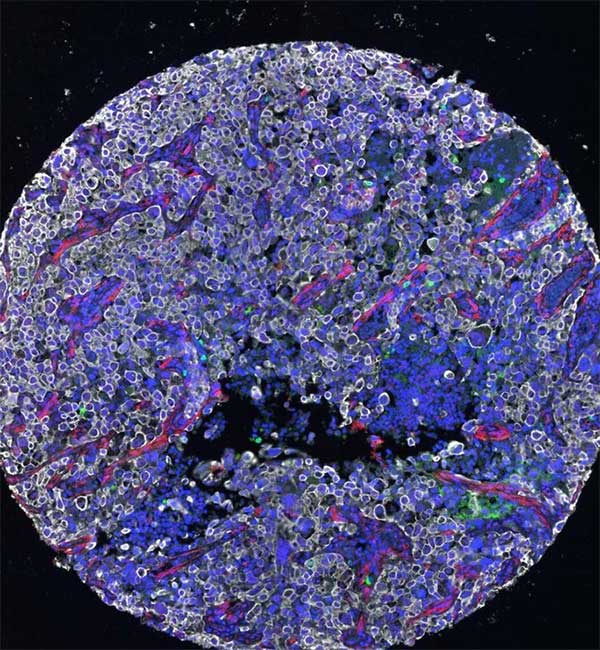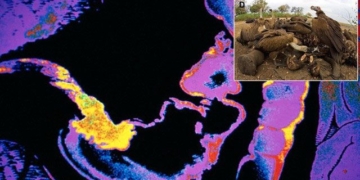Previously, cancer cells that were strong enough to resist advanced immunotherapy have now begun to signal “eat me” due to a new drug being developed by American scientists.
The ability of some cancer cells to evade treatment, including advanced immunotherapies, is a significant factor in the persistence of the disease in the body, leading to numerous debilitating health crises for patients.
According to Medical Xpress, a research team led by Professor Charles Craik from the University of California, San Francisco (UCSF), and Dr. Kevan Shokat from UCSF along with the Howard Hughes Medical Institute has developed a drug specifically targeting these elusive “invisible” cancer cells.

Microscopic image of a tumor in lung cancer – (Photo: MEDICAL XPRESS)
Described in a recently published report in Cancer Cell, the new drug works by pulling a mutated version of KRAS protein to the surface of cancer cells, which the authors describe as a self-“flagging” action that carries the message “eat me.”
This allows the immune system, with the help of conventional cancer drugs, to easily eliminate these cells.
“The immune system can recognize mutated KRAS but cannot find it well. When we mark this protein, it will be easier to locate,” Dr. Hughes explained.
For many years, KRAS mutations, although common in cancer, have been considered “undefeatable,” quietly driving tumor development.
The research team conducted a detailed analysis of this protein and discovered a hidden “pocket” in the mutated KRAS that the drug named sotorasib (which has been approved and used for some time) can target.
However, sotorasib does not help all patients with KRAS mutations. While some tumors may shrink, they can unexpectedly develop resistance to the drug and enlarge again. Consequently, scientists have developed a new KRAS-targeted drug named ARS1620, which is the “warrior” just announced in the new study.
Following laboratory success, the authors are rapidly moving toward animal testing and clinical trials.

















































